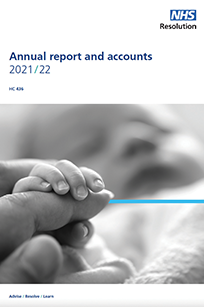News review – September 2022
There were signs the workforce situation was improving at the end of the previous quarter. Figures for the final quarter of the 2021/22 financial year showed a fall in full-time equivalent (FTE) vacancies to around 105,000 – although this could prove to be a blip. The  latest data release from NHS Digital said overall NHS vacancies in England increased to more than 132,000 FTEs in the first quarter of 2022/23. Vacancies increased in all regions, and stand at 9.7% of the NHS workforce. The nursing vacancy rate is 11.8% of the total nursing workforce, and there are now nearly 47,000 nurse vacancies across England. Medical vacancies also climbed to more than 10,500.
latest data release from NHS Digital said overall NHS vacancies in England increased to more than 132,000 FTEs in the first quarter of 2022/23. Vacancies increased in all regions, and stand at 9.7% of the NHS workforce. The nursing vacancy rate is 11.8% of the total nursing workforce, and there are now nearly 47,000 nurse vacancies across England. Medical vacancies also climbed to more than 10,500.
MPs believe the NHS could boost staff numbers by extending flexible working arrangements to all staff in the next 12 months. This would give staff the same control over their working lives as temporary workers. In a report on workforce, the Commons Health and Social Care Committee said these flexibilities would help retain substantive workers, allowing them to choose working hours that better suited their lifestyles and responsibilities. It also called for a ban on newly qualified doctors taking full-time locum posts for their first two years, while all temporary staff should be given access to NHS training to improve their skills. With a wider skill set, temporary staff would be able to take on shifts previously unavailable to them due to lack of qualifications. The report also said the pension tax arrangements – said to be forcing senior doctors to refuse additional shifts, reduce their number of sessions or even consider retirement – were a ‘national scandal’.
Staffing will be key to executing the NHS winter plan, which was revealed in August. It asks the NHS to increase capacity by the equivalent of at least 7,000 beds through a mix of new physical beds, virtual wards and improvements elsewhere in the pathway. Capacity will also be increased outside acute trusts. Accountability has been clarified, with integrated care boards responsible for initial problem-solving if providers fail to deliver their role in local plans, with intervention from NHS England regional teams as required. System performance will be assessed via six metrics – 111 call abandonment; mean 999 call answering times; category 2 ambulance response times; average hours lost to ambulance handover delays per day; acute type 1 bed occupancy; and the percentage of beds occupied by patients who no longer meet the criteria to reside.
The rising cost of living will affect the wider population, NHS leaders in England, Wales and Northern Ireland warned. The NHS Confederation said the increase in energy costs will drive more families into poverty, potentially leading to a public health emergency and increasing pressure on the NHS as more people fall sick. Deaths associated with cold homes – estimated at 10,000 a year – could rise. And increased demand for NHS services would strike just as the service faces what is likely to be the most difficult winter on record, the confederation added.
Regular asymptomatic Covid testing in England has been paused, including in hospitals and care homes. However, testing for individuals with symptoms, such as staff and immunocompromised patients, will continue. Asymptomatic testing will also continue for patients transferring from hospitals and the community into care homes and hospices. In Northern Ireland, free lateral flow tests (LFTs) are now limited to those eligible for Covid treatments and those working in health and social care. Though those with Covid symptoms are no longer advised to take an LFT, the Department of Health said it was essential they minimise contact with others.
The Welsh government is consulting on changes to legislation on social care and continuing NHS healthcare. The proposed changes would eliminate profit from the care of looked-after children, with an initial focus on the private provision of residential care, alongside independent sector foster care. Further proposals would enable access to direct payments for adults eligible for continuing NHS healthcare. Responses are requested by 7 November.
The new NHS Scotland five-year sustainability strategy targets five areas: buildings and land; travel; goods and services; care; and communities. The strategy is part of its aim to be a net-zero health service by 2040. It is estimated 80% of the nation’s global climate emissions are linked to the production, consumption and waste of products and resources, so the strategy sets out plans to create a circular economy – extracting less and reusing more. In the goods and services theme, this will include phasing out use of the most damaging plastics and taking whole-life costs into account when grading tenders.
According to the Commons Public Accounts Committee, it is impossible to have confidence that the contracts awarded to Randox Laboratories for Covid testing and goods were awarded properly. In a report, the committee of MPs said there was ‘woefully inadequate’ record-keeping and a failure to report ministers’ meetings with external parties or deal with potential conflicts of interest. Gaps in the audit trail made it impossible for the National Audit Office to provide positive assurance on the contracts in the normal manner. However, the company insisted it had provided value for money,  adding the PAC report was flawed and was the subject of a legal complaint.
adding the PAC report was flawed and was the subject of a legal complaint.
A record 77% of claims were resolved without court proceedings in 2021/22, NHS Resolution said. Its 2021/22 annual report and accounts said that the move away from court cases continued a year-on-year reduction in clinical negligence proceedings over the past five years and is consistent with its strategy. The number of resolved disputes increased, as has the value of claims settled – £2.5bn in 2021/22 compared with £2.3bn in 2020/21. Provisions increased from £85.2bn to £128.6bn, with more than £42bn of this uplift resulting from a change in the Treasury’s long-term discount rates.
Quotes
Nurses must be paid more to improve recruitment and retention, says RCN general secretary and chief executive Pat Cullen
 ‘There is a clear benefit in reducing energy use and increasing efficiency in everything we do. To achieve the transformational change that is necessary, we need to establish a culture where resources are safeguarded and used responsibly.’
‘There is a clear benefit in reducing energy use and increasing efficiency in everything we do. To achieve the transformational change that is necessary, we need to establish a culture where resources are safeguarded and used responsibly.’
Scottish health secretary Humza Yousaf on plans for NHS eco-sustainability
‘Unless urgent action is taken by government, this will leave an indelible scar on local communities and cause a public health emergency.’
The NHS Confederation is in no doubt that the cost of living crisis will have a serious impact on health

‘We now face the greatest workforce crisis in history in the NHS and in social care, with still no idea of the number of additional doctors, nurses and other professionals we actually need. This must be a top priority for the new prime minister.’
Commons Health and Social Care Committee chair Jeremy Hunt urges the new administration to address health and social care staffing shortfalls
From the hfma
The new structures in England mean organisations are working together as whole systems to improve services to patients, says Paul Brown, Staffordshire and Stoke-on-Trent Integrated Care Board chief finance officer. But changes in culture and attitude will also be needed to deliver success. In a blog on the HFMA website, he says that as well as working collaboratively, organisations will share risk and design services across patient pathways. Integrated care board staff will need new skills and to develop new relationships.
Good Governance Institute senior consultant Joanna Watson says system working will mean changes in risk management for all NHS bodies working in integrated care systems, not just ICBs. System risk management must be put in place, with partners coming together to resolve issues. But it should be recognised that risks in one organisation could affect others in the local system, and may impact differentially. And maintaining board focus on key risks will be part of internal audit’s role as system working develops, says Louise Cobain, MIAA executive director of assurance.
Other blogs over summer looked at costing. HFMA policy and research manager and costing lead Hayley Ringrose, for example, argues costing teams can do more to support transformation, but need time and support. And Jade Ackers, NHS England transformation programme director (digital productivity), describes three areas where the NHS can free up capacity and release time to care.
See HFMA news blogs
Related content
The value masterclass shares examples of organisations and systems that have pursued a value-driven approach and the results they have achieved.
This webinar series offers colleagues of ICS organisations the opportunity to discuss common priorities, challenges, and successes within their field.